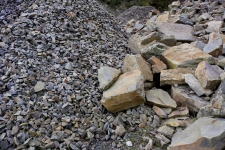Magnesium works for kidney stones, helping to remove debris. How does it happen? Heavy diets of food rich in oxalic -acid, purines, phosphoric acid, and sugar, dehydration causes the formation of kidney stones.
Kidney stones are the condition when small debris excreted in the urine becomes lumps forming stones. These stones can not pass out from the kidneys to the bladder.
I never had this type of condition, but I understand how painful it can be. According to Dr.Carolyn Dean, M.D., N.D., risk factors are:
- The history of hypertension
- The chronic dehydration
- The deficiency of magnesium

Plenty of individuals have this condition. One person in the USA was hospitalized with stuck stones in the urinary passages. The pain is terrible. The pain in the lower back can spread across the abdomen. People can feel the pain in the genitals or the inside of the thigh.
The mechanism of kidney stone formation
A diet with uric acid, oxalic acid, and phosphoric acid prompts the formation of kidney stones. The family history of having kidney stones influences members to have an increased chance of getting rocks. Calcium in the urine causes stones too. Acidic foods such as meat, coffee, alcohol, fructose, and sugar take calcium from the bone and excrete it through the kidneys.
This small debris is stuck together and can not pass urinary passages to the bladder. It is the reason why people feel pain.
Magnesium helps to solve calcium that forms stones in the kidneys.
Wrong diets and genetics do cause kidney stone formation. Magnesium deficiency increases stone presence. Stones can not be solved without magnesium.
Are kidney stones removed?
Usually, individuals are hospitalized and get operations. Large stones are removed using ultrasound machines ( lithotripsy) or treated with surgery. Small rocks calm down with painkillers.
Magnesium works for kidney stones
Magnesium works for kidney stones as a prevention and mineral, which can help solve small debris.
In her book The Magnesium Miracle, Dr. Carolyn Dean mentions Doctor George Bunce. Dr. Bunce, fifty years ago, reported the importance of magnesium. Patients got 420 mg of magnesium oxide per day and benefited from it.
There are plenty of stories showing how magnesium helps prevent kidney stone formation.
Magnesium supplements for the prevention of kidney stones
Some magnesium supplements are not fully absorbed in the body. It means that we can not get the total amount of magnesium. For example, magnesium oxide is consumed by just 4 percent.
The magnesium must be absorbed to its full potential to perform the best job. It means that 100 percent absorption is highly desirable. We want the best results, do we?
Ionic minerals work the best because they reach tissues in the body right away — no fooling around and leaving additional substances behind, as with other magnesium supplements.
ReMag is pico-ionic magnesium that goes straight to the cell. No jokes, just a simple job. I used it by myself for a few months already. I feel the surge of energy. Of course, kidney stones are a different thing, but it means that magnesium does its job. It goes straight to tissues and benefits our precious bodies.
You would tell me that we can get magnesium from food. Sorry, I cannot consume bowls of greens, nuts, or seeds every day. Half of it is okay for me. We need minerals and other vital nutrients every day. Bodies can not perform on-air until now.
Conclusion
Magnesium works for kidney stones as the mineral prevents their formation. Using magnesium supplements and the right ones, we can have peace of mind and avoid trips to the hospital. Doctors have plenty of what to do without our problems. These problems can be solved using magnesium. Of course, if you have stones already, you will see doctors.